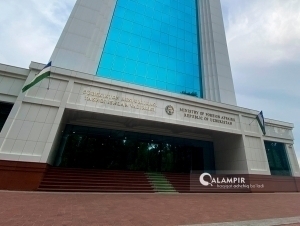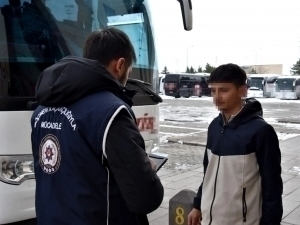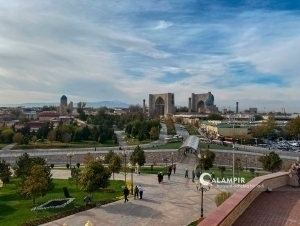Uzbeks dying in Turkey
Interviews
−
31 January 2025 12489 4 minutes
Recently, Turkey has seen a series of deaths caused by the consumption of counterfeit, homemade alcoholic beverages, with Uzbeks among the victims. Of the nearly 50 fatalities recorded so far, 23 have been identified as Uzbek citizens, primarily migrant workers in Istanbul. To learn more about the efforts to repatriate the deceased, QALAMPIR.UZ visited the Consulate General of Uzbekistan in Istanbul.
You can watch an interview with Sherzod Abdunazarov, Consul General of Uzbekistan in Istanbul, in the video player above or on QALAMPIR.UZ's YouTube page.
Kamariddin Shaykhov, Journalist: — The issue currently concerning Uzbeks is the tragic deaths of Uzbek citizens in Turkey due to low-quality alcoholic beverages. What is the latest update on the situation?
Sherzod Abdunazarov, Consul General of Uzbekistan in Istanbul: — At the beginning of 2025, a similar incident occurred among our compatriots working in Turkey. Fatalities were reported in several districts of Istanbul where many Uzbek migrants reside. The cause was the consumption of toxic technical alcohol mixed with water, leading to 23 deaths. Currently, five Uzbek citizens remain hospitalized. We are in close contact with them and their doctors. The condition of two patients has improved, while the other three remain in serious condition.
Regarding the repatriation of the deceased, one body is currently being prepared for transport to Uzbekistan, while the others have already been sent back.
K.Sh.: — Who is responsible for covering the costs of repatriating the bodies of Uzbek citizens? Has the Turkish government established a special commission or provided compensation in this regard?
Sh.A.: — The Turkish government does not cover the costs of repatriating the bodies to Uzbekistan. However, if a body is buried in Turkey, the Turkish state may cover the burial expenses. Financial assistance for sending the deceased back to Uzbekistan comes solely from the relatives of the deceased and the Migration Agency of Uzbekistan.
K.Sh.: — How much does it currently cost to transport a body to Uzbekistan?
Sh.A.: — On average, the cost ranges between $1,200 and $1,500.
K.Sh.: — Did the individuals who died from consuming low-quality alcohol have official documents allowing them to live and work in Turkey?
Sh.A.: — Most of them did not have work permits. Many of our deceased citizens were working illegally, without official documentation. Only one of them had a valid work permit, and the Migration Agency assisted in sending his body to Uzbekistan."*
K.Sh.: — We know that Uzbeks in Istanbul primarily reside in the Fatih district, as well as the Oksaray and Laleli neighborhoods. Were the deceased mainly from these areas?
Sh.A.: — Our compatriots work in these areas, engaging in trade, running restaurants, and providing various services. In terms of residence, in addition to Fatih, many also live in Başakşehir and Esenyurt. The majority of the deceased were from these districts on the European side of Istanbul. On the Asian side, a similar case was recorded in Ümraniye. However, investigations revealed that the citizen who died in Ümraniye had also obtained the homemade alcohol from Fatih district.
K.Sh.: — The average distance between Fatih and Beylikdüzü is around 20 kilometers. I bring up these locations for a reason—this issue is no longer limited to areas inhabited by Uzbeks or Central Asian citizens. Low-quality alcohol has now spread to areas where local Turkish citizens reside as well. Is that correct?
Sh. A.: Absolutely! In response to the crisis, the Istanbul government has formed a working group that has identified over sixty locations selling counterfeit alcohol. These businesses have had their licenses revoked and have been shut down. Authorities have also detained multiple individuals involved in the production and sale of these illicit beverages. Currently, about 10 suspects have been detained. Criminal cases have been formally opened against four of them, while investigations are still ongoing for the others.
Following this incident, the Istanbul Governorate has implemented additional measures, including a requirement for all liquor stores to install 24-hour video surveillance. Regulations for issuing liquor licenses have also been tightened, and businesses must now retain video recordings for at least 30 days. Awareness campaigns about the dangers of counterfeit alcohol are also being conducted through the media. A criminal case has been launched, and investigations are actively underway.
While we can confirm that there are no Turkish citizens among those producing the counterfeit alcohol, some suspects are citizens of neighboring countries. However, due to the ongoing investigation, we cannot disclose their names or nationalities at this time.




